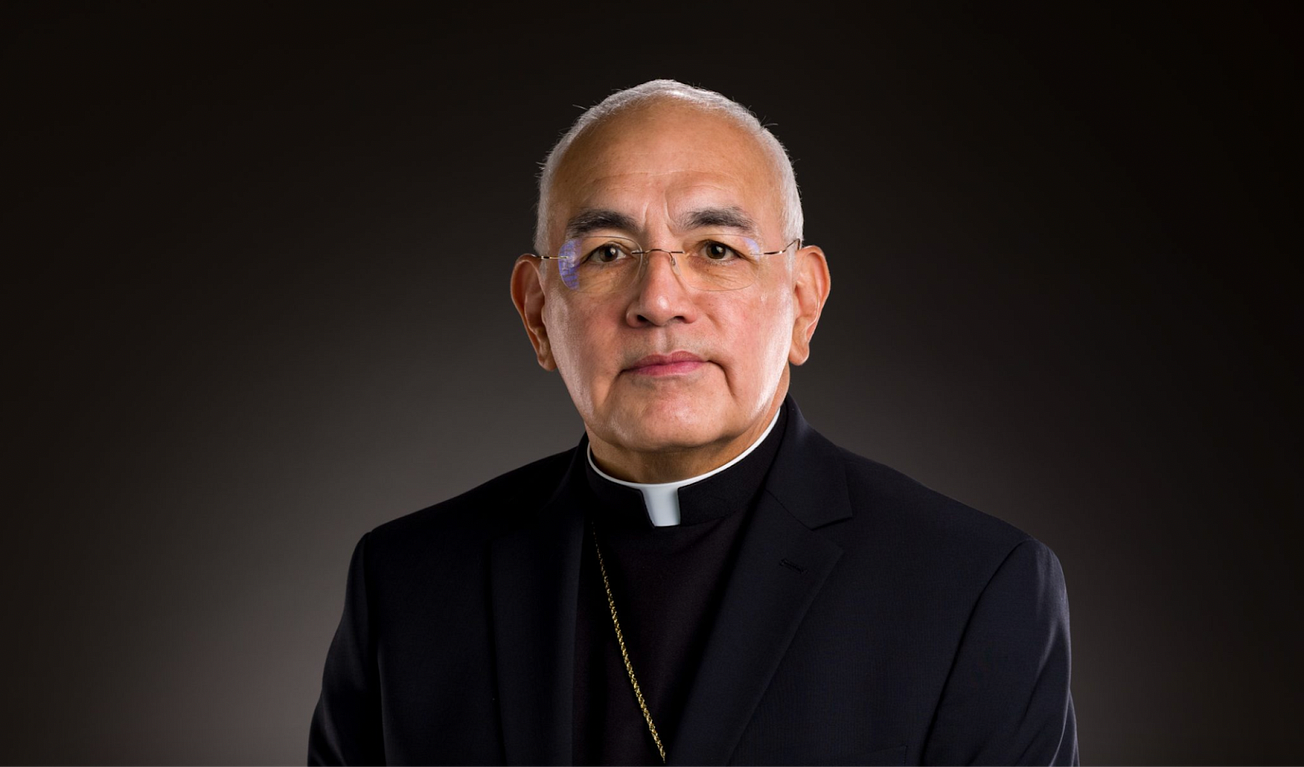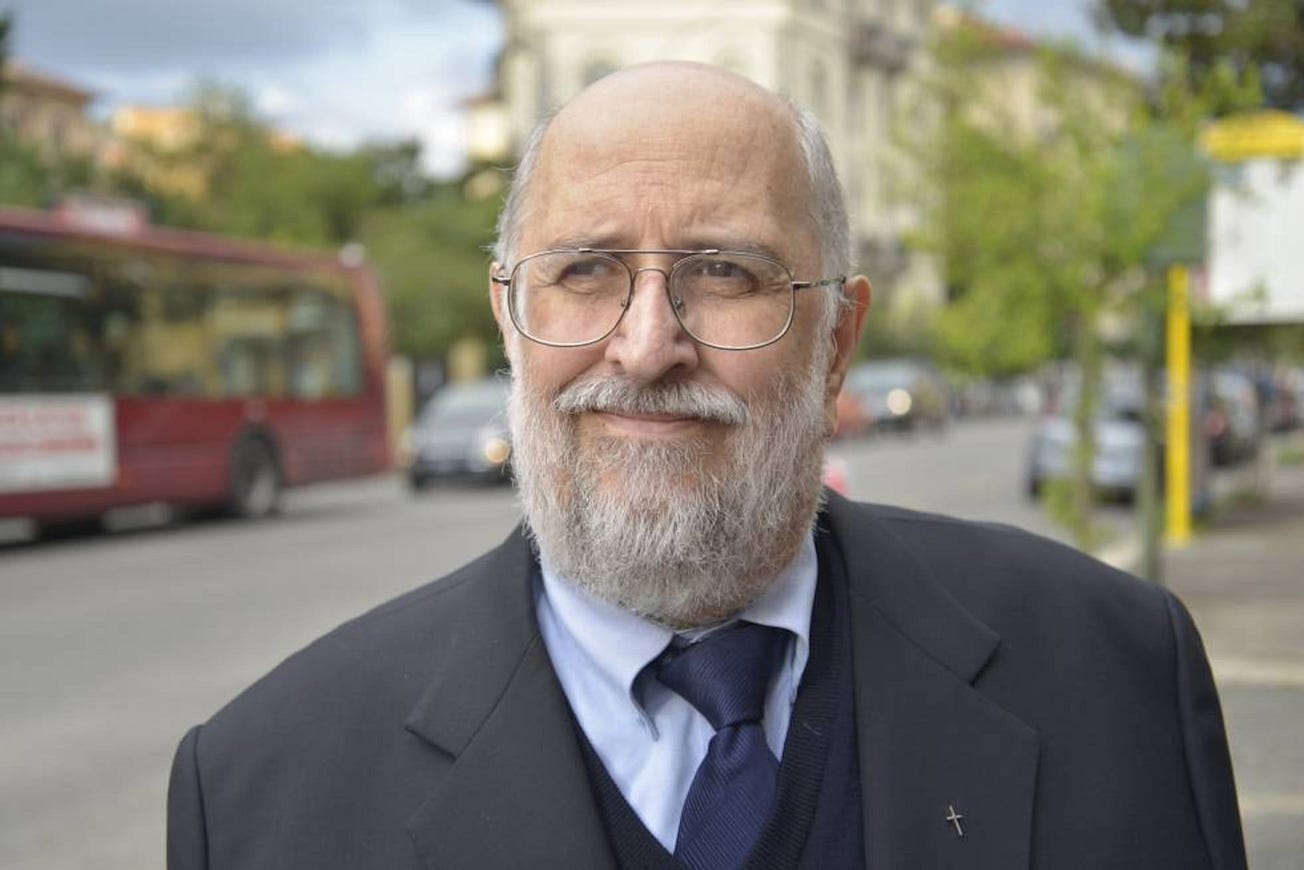Happy Friday friends,
Today is Friday of the fourth week of Lent. That’s it, I’m afraid. It’s not a solemnity, or the eve of a solemnity. There is no canonical fig leaf for firing up the barbecue, however debatable. Sorry about that, but three weeks in a row would kind of cut into the whole point of the season, really.
So get yourself some gator meat, a capybara, or beaver tail, bust open the sparkling water, and spend some time in the spiritual desert. It’s good for us.
—
One date which did fall this week, but isn’t a feast (yet?), is the anniversary of Servant of God Sister Thea Bowman’s death, 32 years ago this week. A powerful evangelist and a witness to the role of Black Catholics in the Church in the U.S., her cause for sainthood was opened in 2018, supported by the U.S. bishops’ conference.
To mark her anniversary, we put together a Sr. Thea reading and watching list you should check out. She’s probably best known for an address she gave to the bishops back in 1989.
It’s definitely worth marking the time to watch.
The News
The Pontifical North American College in Rome announced Wednesday that Msgr. Thomas Powers of the Diocese of Bridgeport will be its new rector.
Powers’ appointment brings to a close a longer-than-expected search for a new rector of the American seminary in Rome. As we’ve been reporting, the seminary’s trustees and the Congregation for the Clergy ended up in a bit of a deadlock — but they have their man now, and he’ll be starting in his new role in July.
—
So, who is Msgr. Powers, what expectations does he have for the job, and perhaps most important, what expectations will the job have of him?
We thought it would be easiest to ask the man himself.
So, also on Wednesday, we interviewed him.
It’s a very interesting conversation — read the whole thing.
—
It’s been a week of education news in the Church, one way and another, and the Congregation for Catholic Education itself issued a new instruction on Catholic schools.
As a legal instrument, the instruction is binding as an interpretation of the Church’s law and teaching on Catholics schools. Its central theme is what makes a school “Catholic” in the first place, since the congregation “has been confronted with cases of conflicts and appeals resulting from different interpretations of the traditional concept of Catholic identity by educational institutions.”
And “we cannot create a culture of dialogue if we do not have identity,” the text says.
So what does that mean for the role of Catholic teachers, parents, pupils, and school administrators? The document addresses all that.
It also has some pretty pointed requirements on hiring (and firing) policies, and a lot of other hot-button issues facing Catholic schools around this country.
Read our breakdown of what it says here.
—
Of course, an instruction from a Vatican congregation is a fine thing in itself. But the extent to which it makes it into the bloodstream of Catholic schools at the local level depends a great deal on the extent to which its provisions are enforced by Rome.
That standoff has been going on for nearly three years now. It remains to be seen when and how it will be resolved. But if the eventual result seems to point one way, and the Vatican’s official policy another, it will make bringing the congregation’s new instruction to life very hard indeed.
You can read JD’s analysis here.
—
Speaking of Roman announcements, there are a lot of pending appointments in the Vatican right now, after the promulgation of last month’s new apostolic constitution on the Roman curia.
A surprising number of cardinals are well past retirement age, and look set to be replaced when Praedicate evangelium comes into force in two months time. Some of them are even set to have their departments merged out from under them.
So, which dicasteries look set for some fresh — perhaps lay — leadership? I went through the likely candidates in an analysis earlier this week.
—
There is, to understate the obvious, a lot wrong with our culture’s conception of sex. The reduction of sex to “consent” alone has left a nihilistic, atomized, self-referential legacy for a generation to grapple with.
In her book “Reconsidering Sex,” Christine Emba argued that so much sexual “liberation” has left so many people miserable, and that consent alone is neither a substitute for morality, nor a guarantee of happiness.
Emba talked with The Pillar’s Charlie Camosy about it all this week, in a fascinating conversation:
In many ways, as a society, we have absolved ourselves of the responsibility to care for each other. Instead, it has become normalized – and even valorized – to care only for ourselves and what we can get. That extends to romantic and sexual relationships.
A culture that only talks about consent and doesn’t ask any further questions about how we should treat each other allows selfishness to flourish.
Read the whole thing, if for no other reason than because you won’t find another interview talking about “the coming of sophisticated, AI-driven sex robots” anywhere in your inbox.
—
‘House of Cardinals’
We had another session of the Vatican financial trial this week. I am not going to tax your patience by giving you a breathless blow-by-blow of what went on in court.
I could, of course. And I want to. But I am actually aware that there is a saturation point for most people on this stuff. So here’s the highlight reel of what happened:
Pope Francis has waived the pontifical secret for Cardinal Becciu; meaning the cardinal is now free to answer some awkward questions about his use of a private spy, Cecelia Marogna, and the payments he authorized to her, without being able to claim its a state secret.
A senior official at the Secretary of State confirmed to the court that Becciu’s successor as sostituto, Archbishop Edgar Peña Parra, authorized an investigation into the director of the IOR after the Vatican bank said no to a 150 million euro loan request to finance the London property deal.
The IOR told the court that they can go one further than that, and show that Peña Parra contracted out his investigations to Italian intelligence officers, and paid for it using some very “imaginative” invoices.
It bears repeating that this is the first trial of its kind in some 300 years.
And it is not an exaggeration to say that years of meticulous, investigative, long-term reporting on a scandal a lot of people wanted to just disappear has played a part in making it happen. It doesn’t mean that following every twist and turn is for everyone — but it does mean that it has to be done by someone, and we are committed to doing our bit.
Incidentally, reporting of this kind takes a lot of time. If you’d like to help us continue putting in the hours, we’d appreciate it:
But maybe you’re a different kind of reader. Maybe you’ve been following this story from the beginning, but fallen a week or two behind and need to get up to speed.
Or, maybe you’re new to the whole trial but itching to catch up and wishing there was some way to just… you know… binge watch all our coverage like it was a season of some edgy Netflix political thriller.
Well, lucky you. Because this week we bring you the season one recap of the Vatican’s own “House of Cards.”
Every episode, every character, every plot twist, we have it for you, right here.
Really, don’t miss it.
Unfinished business
So here’s a peak behind the curtain for you guys.
This is the part of my Friday newsletter in which I try to write about something a little off-beat: maybe something that piques my interest, or, failing that, venting about somebody or something in the news that I find infuriating.
It’s a fun exercise for me, usually. But the real reason I do it is because we aim to grow our little family here at The Pillar. To grow our project, we need more readers, who will hopefully become new subscribers. And so the hope is that, if there’s something down here at the end that makes you laugh, or has a great quote, you’ll maybe forward it on, and so on.
I had a couple of ideas for this week.
I was going to write an elaborate, absurdist history of April fools and its Catholic origins, as a joke.
Or, it’s the annual Swiss watch industry’s expo week over in Geneva and I thought about giving you something on why I have such a weird, niche, obsession with expensive pieces of mechanical man-jewlery that I can’t afford, and talk about how watches are vessels of memory that tie us to other people and other times and point us towards what is waiting for us at the end of our own time here.
And I briefly considered writing about the weird, gnawing anxiety which has come along with our daughter turning six months old, and how my child can have been in my life for all of five seconds and already feel like she’s getting too big, too fast.
But I got nothing. I was still writing at 2:30 a.m. and couldn’t stick the landing on any of them.
I didn’t wake up with a good idea either, though when I floated the idea of “going meta” and writing about not having a kicker for this newsletter, JD thought briefly I wanted to take shots at Mark Zuckerberg.
Given the risqué mention of robots above, I briefly toy with a few obscene jokes about the waxy Facebook guy, but this is a family-friendly letter.
Come 11:30 a.m., I still have a blank section and it is eating me up.
Part of it is founder neurosis, for sure. I tend to live and die by how our newsletters perform, and to over-analyze what every week means for our project’s future viability. If you’re thinking I should be trusting Providence, you’re right, of course, but here we are.
But, I think, a large part of it is ego — as is the case with nearly all writing, anywhere, that isn’t factual reporting or analysis. And it’s a Friday in Lent. So I am going to take the “L” on this one, accept I don’t have a great kicker for you, and say the rosary for your intentions instead.
Then we have an explainer to write about what heresy is, and what it isn’t — thanks to Cardinal Reinhard Marx.
See you next week,
Ed. Condon
Editor
The Pillar






